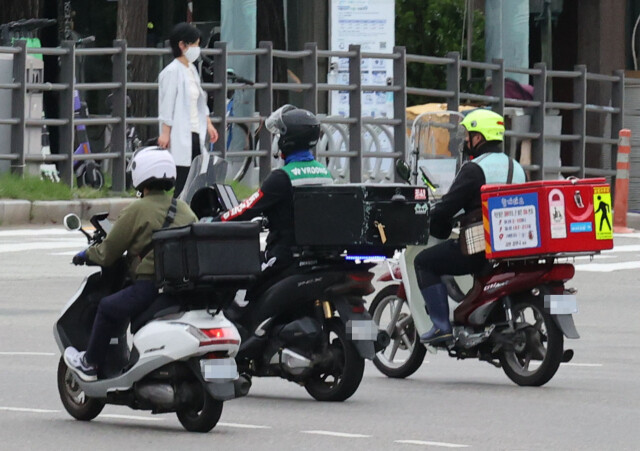
According to a report released by the Bank of Korea on July 17, 2025, the rapid growth of food delivery platforms is exacerbating polarization in the domestic self-employed market. In particular, small-scale self-employed businesses in non-metropolitan areas are being hit harder. This trend is leading to a decrease in the number of restaurant operators as the proportion of online delivery increases, and a widening gap in sales between large and small restaurants.
Delivery Platforms Lead to Decline in Self-Employed Numbers and Increased Polarization
The Bank of Korea today (17th) unveiled its report titled 'Impact of Online Platform Growth on Local Self-Employment and Response Strategies' at the '2025 BOK Regional Economy Symposium' held at the Kimdaejung Convention Center in Gwangju. According to the report, a 10 percentage point increase in online delivery proportion was associated with a decrease of 3.5 self-employed individuals per 10,000 population in metropolitan areas and 3.2 individuals in non-metropolitan areas. This suggests that the spread of delivery platforms is directly contributing to a decline in the overall number of self-employed individuals.
More concerning is the fact that the polarization among self-employed individuals is more pronounced in non-metropolitan areas. When the proportion of online food delivery rose by 10 percentage points, the sales growth gap between the top 20% and bottom 20% of self-employed businesses in a region was 3.2 percentage points in metropolitan areas, whereas it was 6.3 percentage points in non-metropolitan areas – nearly double. This widening gap is attributed to the relatively lower ability of small-scale businesses in non-metropolitan areas to adapt to technological changes and the greater burden of costs such as platform commissions from using delivery services. Generally, delivery platforms impose a certain percentage of commission per order (average 10-15%), payment processing fees (approx. 3%), and advertising costs. These costs disproportionately burden small-scale businesses with low sales, leading to a deterioration in profitability.
Spread of Online Consumption Also Affects Retail Employment
Beyond the impact of delivery platforms on the food service industry, the spread of online retail sales has also negatively affected employment in the retail sector. The report indicated that a 1 percentage point increase in online consumption was associated with an 8.3 decrease in employment per 10,000 regional population in non-metropolitan areas. In contrast, no significant employment changes were observed in the retail sector of metropolitan areas. This suggests that retail businesses in metropolitan areas have a relatively higher capacity to adapt to online shifts, or they may be offsetting employment losses through omnichannel strategies that combine both offline and online channels.
Policy Recommendations: Selective Financial Support and Region-Specific Strategies
To address these issues, the Bank of Korea proposed policy directions for the government. The report emphasized that when providing financial support to self-employed individuals, the government should selectively and sufficiently support those with high growth potential. Indiscriminate support for businesses that have lost competitiveness could lead to market inefficiencies and generate negative externalities that hinder the growth of other businesses.
Jeong Min-soo, head of the Regional Economic Research Team at the BOK's Research Department, stated, "Financial support should be selectively provided, focusing on early-stage startups, young entrepreneurs, and small-scale businesses." He added, "Especially in non-metropolitan areas, it's essential to establish consumption hubs centered around key cities and simultaneously implement region-specific specialization strategies for service industries." This is interpreted as an intention to promote the development of service industries by leveraging the unique characteristics and strengths of specific regions, and to strengthen the competitiveness of small-scale self-employed businesses through local consumption revitalization. For instance, this could involve fostering restaurants that utilize local specialties or developing tourism-linked services.
These policy recommendations are expected to play a crucial role in creating a foundation for self-employed individuals to survive and grow amidst a rapidly changing distribution environment. Going forward, the government and relevant institutions should devise concrete measures based on the Bank of Korea's analysis to alleviate the difficulties faced by self-employed individuals and foster a healthy market ecosystem.
[Copyright (c) Global Economic Times. All Rights Reserved.]




























